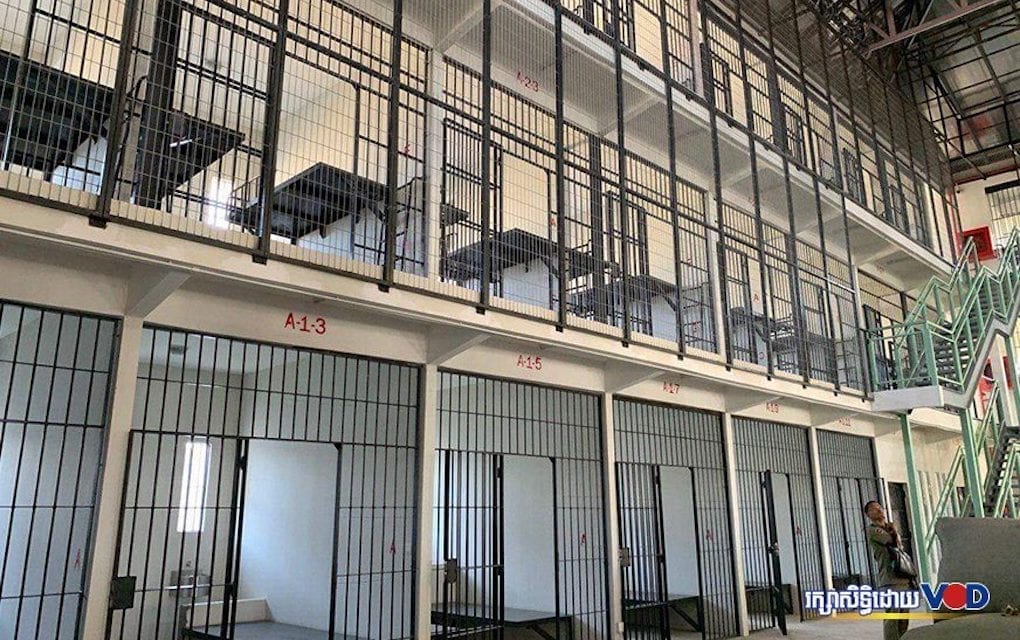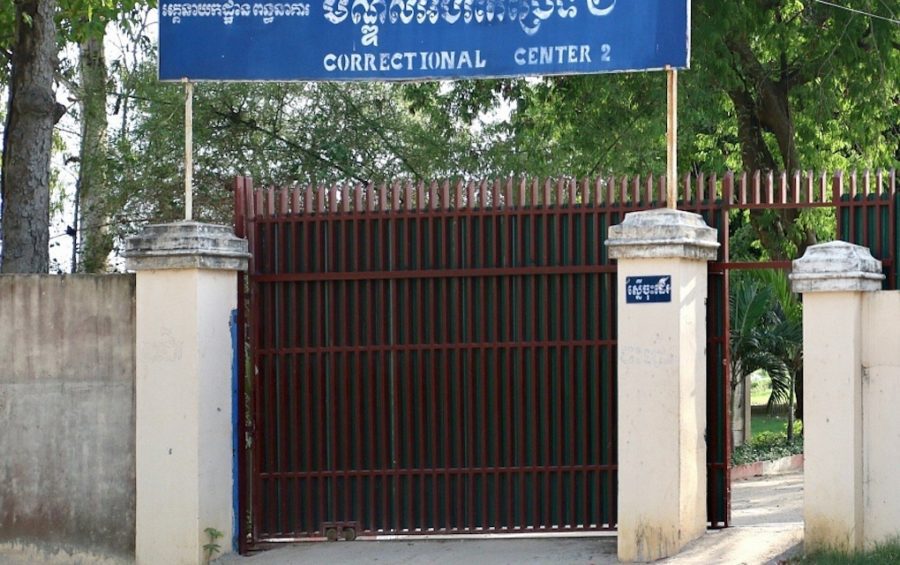The government said it will not release any of the nation’s nearly 39,000 prisoners on bail amid the Covid-19 pandemic, despite concerns about possible outbreaks in prisons raised by human rights groups, the U.N. and prisoners’ families.
Justice Ministry spokesman Chin Malin said the government has no plans to release prisoners due to officials’ concerns about the potential risk to public order.
“We have not considered releasing detainees because of security and social stability, but what can be done is to maintain hygiene and take necessary measures to promote hygiene and health for the detainees,” Malin told VOD on Tuesday.
“That’s what we can do and other countries have also done. As for releasing prisoners, it seems no country has done this,” he said.
However, the U.N. Office of the High Commissioner for Human Rights last week praised several nations, including Iran and Indonesia, for promising to release tens of thousands of prisoners, after U.N. rights commissioner Michelle Bachelet earlier called for governments to take action to prevent Covid-19 from spreading in overcrowded prisons and detention centers.
As the number of confirmed cases of the novel coronavirus in Cambodia rose last month from one to more than 100, authorities ramped up arrests of individuals accused of spreading false information related to Covid-19 online, including at least four former CNRP officials or supporters who were detained.
Keo Thai, a former CNRP official in Kampong Chhnang province, was arrested in late March and charged with treason, incitement and causing social instability. His daughter Chan Rachna said she’s concerned about her father’s health, especially while he’s being detained in Prey Sar prison.
“I am worried because of the spread of the coronavirus and also he has an illness,” Rachna said. “He always has high blood pressure and allergies.”
On Monday, Human Rights Watch (HRW) warned that Cambodian prisons have the potential to become “epicenters” for the virus due to serious overcrowding inside facilities.
“Cambodia should speedily release prisoners at greater risk if infected, as well as those detained for minor offenses, and take urgent steps to ensure prisoners get adequate medical care,” Phil Robertson, HRW’s deputy Asia director, said in a statement.

Last month, the General Department of Prisons banned family members and advocates from visiting prisoners, citing efforts to limit the spread of Covid-19.
Nuth Savna, spokesman for the prisons department, told VOD on Tuesday that the visitors ban was part of the prison system’s push to maintain hygiene, along with conducting health checkups for those with symptoms, cleaning facilities and isolating new prisoners.
“For the meantime, to manage the health of detainees, we will keep them in the same place,” Savna said. “But for the newcomers, we will keep them separate for 14 days. If they don’t have any symptoms, then we will detain them like the others.”
Savna did not provide details about how prisoners would be isolated.
Naly Pilorge, director of human rights group Licadho, said the NGO’s doctors, who provide care to prisoners, had prepared full personal protective equipment, including masks, gloves, bodysuits and face shields in order to safely assist detainees, though prison officials still banned them from visiting.
Citing the global pandemic and overcrowding in almost all of the nation’s 28 prisons, Pilorge said Licadho was pleading with the Interior Ministry and its prisons department to allow the organization’s doctors to “provide crucial medical services in prisons during these dangerous times.”
“We also call on the Ministry of Justice to urgently consider releasing non-violent offenders on bail, and to speed up trial processes — especially of vulnerable groups such as pregnant women, mothers with children, young people, mentally or physically ill detainees and elderly prisoners,” she said in a message.
Long Kimheang told VOD that the ban on prison visits completely cut her off from her husband, Rath Rott Mony, a translator jailed over his work on a controversial documentary on child sexual exploitation who was found guilty last year of “incitement to discriminate.”
“I am really worried about my husband because he is living with many other detainees and I don’t know who they are,” she said. “I don’t have any information from him because they don’t allow us to visit [detained] relatives.”
Cambodia is currently incarcerating 38,990 people, including some 2,600 women, Interior Minister Sar Kheng told reporters last week. In February, Prime Minister Hun Sen called for the Justice Ministry to speed up pre-trial detention proceedings for women, while prison officials have said male detainees would be sent to a new Phnom Penh prison to reduce crowding in another facility.
As of Wednesday, Cambodia has confirmed 117 Covid-19 cases since January, with about half of patients reported recovered. No deaths linked to the virus have been confirmed.
The government is in the process of finalizing a state of emergency law, which would give it broad powers to control civilians’ movements, restrict and monitor communications, and sentence violators to up to 10 years in prison, according to a leaked draft copy of the law.
The International Commission of Jurists, a human rights and rule of law advocacy group, on Wednesday said the draft law violates rights and rule of law principles, and called on the government to withdraw or amend the bill to reflect international rights law and standards.
“The Cambodian government has long abused the term ‘rule of law’ to justify bringing into force laws or regulations that are then used to suppress free expression and target critics. This bill is no different,” Frederick Rawski, ICJ’s director for Asia and the Pacific, said in a statement.
Hun Sen said on Tuesday that there was only a 0.1 percent chance that the law would be implemented after it’s passed.
“The possibility of announcing a state of emergency and the possibility of putting the country in a state of emergency due to the spread of Covid-19 is too little, but even though it is little, [we] need to have a legal tool in hand,” the prime minister said during a press conference.
The National Assembly will meet to review the draft law on Friday, and then pass the legislation to the Senate and Constitutional Council. The law would not be passed before Khmer New Year next week, Hun Sen said.
Additional reporting by Nat Sopheap and Danielle Keeton-Olsen
(Translated and edited from the original articles on VOD Khmer)













